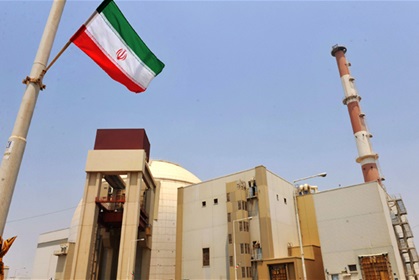Why in news?
On April 9, 2025, the US has imposed new sanctions on Iran's nuclear program ahead of nuclear talks with Iran. Iran's development of nuclear weapons can pose a serious threat to the Middle East as well as overall global security.

About Iran's nuclear development program
Beginning
In 1957, Iran and the US signed a nuclear cooperation agreement, under which Iran got the opportunity to acquire nuclear energy technology.
Historical development sequence
- After the Islamic Revolution in 1979, Iran saw nuclear energy as an important element in terms of national security.
- In the early 2000s, Iran gave prominence to uranium enrichment in its nuclear program.
- In 2006, Iran confirmed that it had started uranium enrichment work at the Natanz plant.
Sanctions on Iran
- Global concerns and controversies over Iran's nuclear program increased further when Iran rejected inspections by the United Nations nuclear watchdog 'International Atomic Energy Agency' (IAEA).
- Western countries and the United Nations imposed strict sanctions on Iran to limit its nuclear program.
Iran's stance
Iran continued its program by rejecting these sanctions, while Western countries tried to put strong pressure on Iran to use nuclear technology only for peaceful purposes.
2015 Nuclear Agreement (JCPOA)
- In the year 2015, an important nuclear agreement was reached between Iran and the P5+1 countries (US, UK, France, Russia, China and Germany), which was called the Joint Comprehensive Action Plan (JCPOA).
- Under this agreement, Iran agreed to limit its nuclear program and reduce uranium enrichment activities, in exchange for easing of economic sanctions.
- However, in 2018, US President Donald Trump unilaterally withdrew the US from the deal, after which Iran again started increasing its nuclear activities.
Danger situation
- In 2020 and 2021, Iran rapidly increased its nuclear program and increased the uranium enrichment level from 20% to 60%, which was very close to the enrichment level required to make nuclear weapons.
- This was a major shock to the international community and efforts to put strong economic and diplomatic pressure on Iran intensified.
Threats from Iran's nuclear weapons program
- Change in the conventional balance of power: Iran's acquisition of nuclear weapons would make it a major military power in the Middle East, changing the regional balance of power.
- Risk of Iran's proxy wars: Iran may encourage more proxy groups (e.g. Hezbollah, Houthi rebels), which may increase security threats to the US and its allies (e.g. Israel).
- Threat of nuclear proliferation: Iran acquiring nuclear weapons can promote nuclear proliferation not only in the Middle East but all over the world.
- Impact on NPT (Nuclear Non-Proliferation Treaty): Iran's development of nuclear weapons can weaken the strength of NPT as it will go against global efforts to stop the spread of nuclear weapons.
India's View
- Iran's nuclear program is a matter of serious concern for India due to India's location in the western neighbourhood and strong energy cooperation and trade relations between the two countries.
- If Iran has nuclear weapons, it can be a new challenge for India from security and diplomatic point of view.
- India must take a tough stand on this at the international level and convince Iran that adhering to the Nuclear Non-Proliferation Treaty (NPT) is best for global peace and security.
- India must make diplomatic efforts with restraint on this issue and ensure that nuclear weapons do not spread under any circumstances.
Conclusion
Iran's nuclear development program is a sensitive and controversial issue, which can pose a threat not only to the Middle East but also to global security. The global community should monitor Iran's development of nuclear weapons and follow diplomatic, economic and other measures to stop it.



